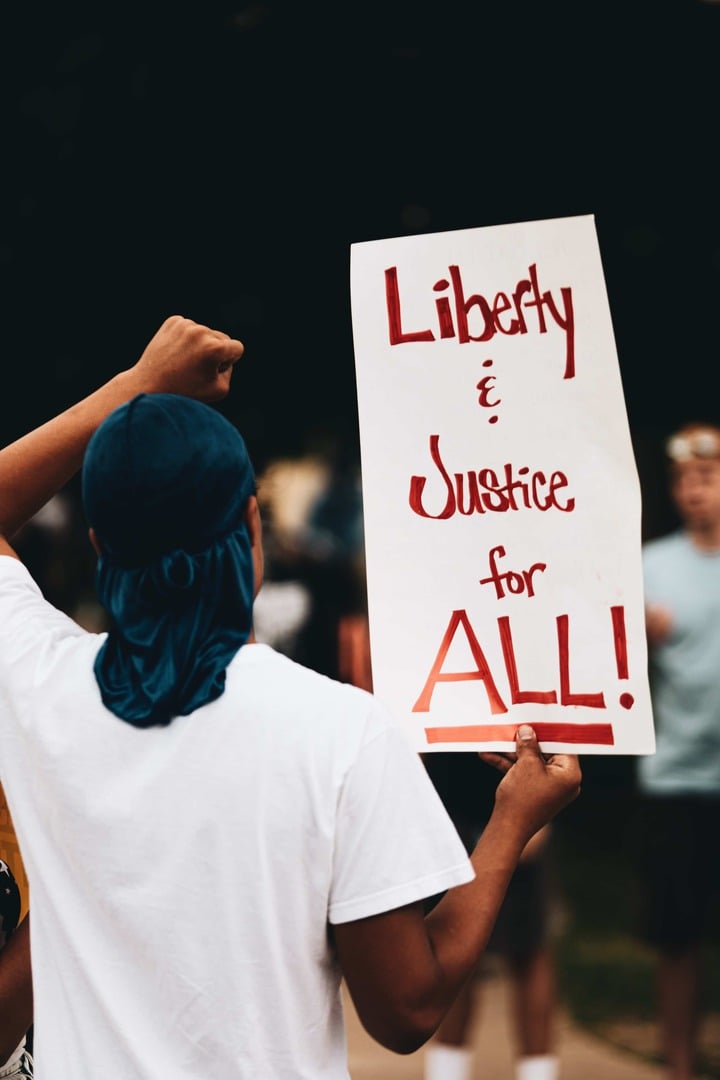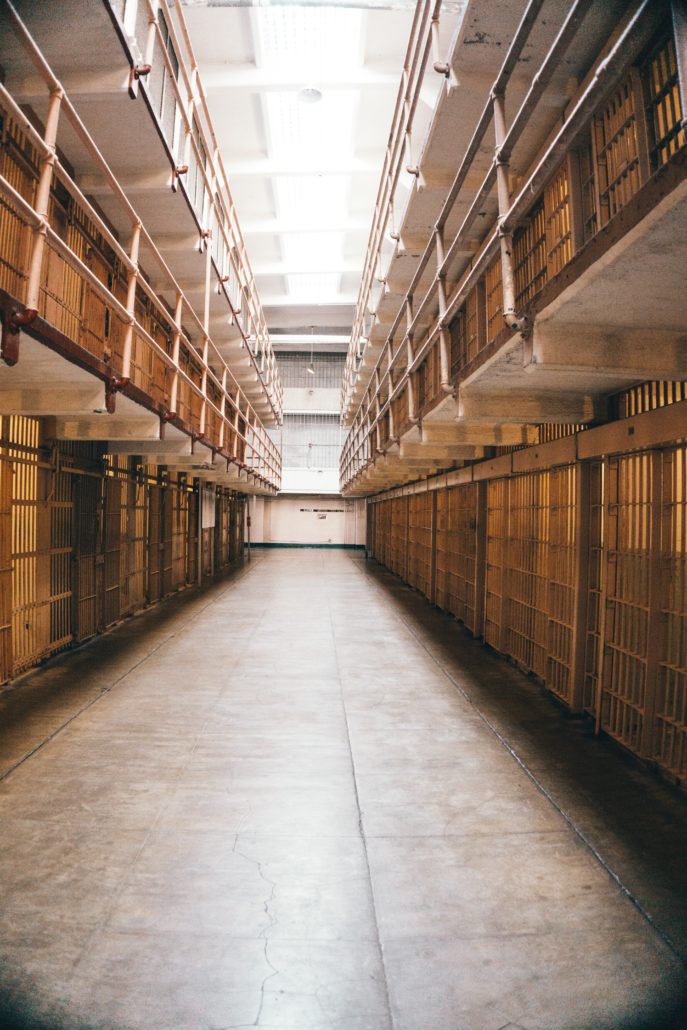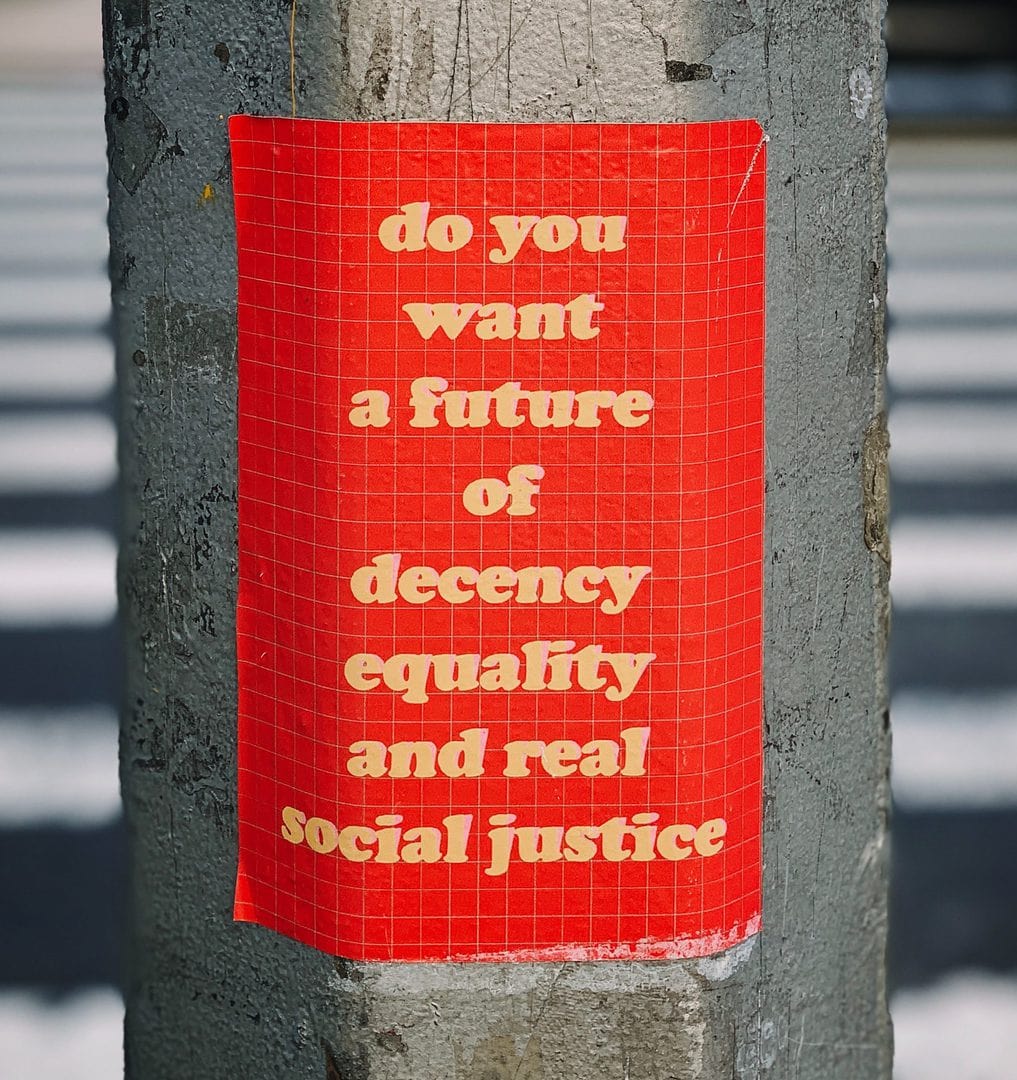“You will know the truth, and the truth will make you free.”
When Jesus spoke these words 2000 years ago, he may not have been speaking directly of the mass incarceration system fragmenting our nation, devouring lives and spitting some back out more broken than before. But he was speaking of the sacrificial mentality that has since manifested in mass incarceration and other atrocities. He was enlightening us to the state of our own imprisonment in our deceptive desires for vengeance and misguided attempts to form identities over and against others.
And he was pointing us to the deeper truth of Love that binds us together.
An irrevocable human connection tethers us across divisions of color, class, ideology, and nation. We are made from Love for Love, to live in harmonious relationship and responsibility to one another.
Knowing and living into the truth of our interconnection to God and each other makes us free.
And that’s why none of us can fully be free until all of us are free.
Our nation belies its promise of liberty and justice for all. Mass incarceration traps us in a sacrificial system, offering false protection while eroding our humanity.
Recently, I advocated looking to Jesus as our model for police reform. Reimagining our social order according to mercy, not sacrifice, extends to asking how Jesus would reform our prison system as well. And the answer springs from the depths of my soul: Jesus reorients our entire understanding of justice from retributive to restorative. Following Jesus means transforming, reducing, and eventually abolishing our prisons as we build communities that meet the needs of all people, mediate conflicts peacefully, and furnish consequences for wrongdoing that rehabilitate rather than condemn.
Again, my inner skeptic needles me with concerns. Can we honestly connect Jesus’s life and work to a refutation of our system of mass incarceration? Can a merciful system heal victims as well as rehabilitate offenders?
The trouble is, when we look to Jesus, we are forced to contend with our own violence. How can we advocate for a more merciful justice system knowing the depths of human cruelty that Jesus exposed in his own crucified body?
Yet beyond even the most terrible violence made visible in his wounds, Jesus illuminates the redemptive power of love. When we root ourselves in the truth that we are all wholly beloved and redeemed through mercy, then we can build justice –harmonious relationship – even out of our brokenness.
So, again, as I dialogue with my inner skeptic, I open a window to my heart and mind to let you peek inside.
(For clarification, when I speak of restorative justice, I mean it in the broadest sense of eschewing all violence from our relationships and living in loving responsibility to each other. But that reorientation is facilitated by specific restorative justice programs within and beyond prisons. This article uses both understandings.)
Knowing and living into the truth of our interconnection to God and each other makes us free … none of us can fully be free until all of us are free.
Can we faithfully connect Jesus’ life and ministry to the call for modern prison abolition?
Yes.
When Jesus says, “The truth will set you free,” he is claiming divinity through his revelation of God’s complete nonviolence and communion with us through mercy, not sacrifice. By disentangling God from sacrifice, Jesus frees us from the false justice of violence that frays the human fabric, for the true justice of living into our full humanity in harmonious community together.
These words come in the middle of the eighth chapter of John, which begins with Jesus intervening to prevent a woman from being stoned for adultery. Jesus renounces the sacrificial interpretation of the law and instead applies it mercifully.
Furthermore, when Jesus says, “Let the one without sin cast the first stone,” he sheds light on the mimetic frenzy that first gave birth to the misconception that communal killing holds divine power, from which the sacrificial order masquerading as justice derived.
Here’s how ancient peoples thought they found transcendence through violence: humans are wired to derive desire from each other. Shared desires can lead to rivalries that escalate into chaos until people unify in mutual accusation against a scapegoat.
When people in a crisis converge on a scapegoat, there is no “first stone.” All stones fly together as the crowd gets caught up in the unity of accusation, everyone taking their cues subconsciously from each other. The collective relief that comes from accusing and punishing together is falsely perceived as justice from God.
This is how God was confused with violence from the foundation of the world, and how laws ritualizing violence as punishment could be thought to be divine.
The logic of sacrifice tells the elders that this woman no longer belongs. They are ready to kill her together for the sake of the community, on behalf of God.

But when Jesus calls for a single person to pick up a stone, he shatters the false authority of violence. Forced into self-reflection, the elders separate themselves from the unity of sacrifice, eyes slowly opening to its horror. The mimetic thrall of uniting against an enemy is shattered.
Jesus isn’t merely suggesting that a sinless person would be justified in casting a stone. Rather, he is reaffirming the woman’s humanity by erasing the boundary that the elders had perceived between her and themselves. And he is calling into question the perceived righteousness of stone-throwing altogether.
He has pulled at the thread of sacrificial logic that has entangled God in violence; now it can slowly unravel. Now the woman and the elders and all of us can be unbound from the false connection between God and sacrifice. The truth of God’s mercy frees us to live into mercy together.
And the truth opens our eyes to all the ways our current social order still derives from the false power of sacrifice. It calls us to transform or dismantle systems that dehumanize and divide – including our system of mass incarceration.
But can our criminal justice system fairly be called a sacrificial system?
Yes.
Because racism has deeply permeated and fragmented our nation, all our institutions are in some ways sacrificial. They all must move in the direction of mercy.
But our criminal justice system mirrors the sacrificial system of Jesus’s time in at least three ways: by reifying scapegoating divisions carved by racism, punishing excessively according to the logic of righteous retribution, and mythologizing our violence behind a narrative of justice.
Racial inequities persist at every stage within our criminal justice system. We can directly trace our fractured foundation of slavery and genocide to the dishonorable distinction of having the world’s largest prison population, disproportionately comprised of people of color.
Furthermore, the sacrificial logic of redemptive violence fuels cruelty in prisons. From medical negligence to unsafe, exploitive labor conditions to brutal abuse, prisons often dehumanize rather than rehabilitate inmates.
Reducing people to their perceived violations of the law, no matter how big or small the action, is violence in itself that fuels further violence in an endless cycle.
Finally, the mythology surrounding our criminal justice system upholds a false sense of justice belied by the experience of prisoners. The elders in Jesus’s time assumed they were applying the law under God; we assume our law is applied under the authority of the Constitution, which calls for equal protection. Past societies thought they solved problems justly through punishment under the sanction of a higher authority. Little has changed.
In reality, the vast majority of cases never even make it to trial. Far more resources go toward punishing all the accused than exonerating the innocent and rehabilitating the guilty.
Prisons in our society are more about maintaining a sacrificial identity, subtly feeding dehumanizing stereotypes against racial minorities and poor people, than they are about facilitating healing for victims and rehabilitation for offenders.
The Olive
Branch
Take A Breath with Us
Our weekly newsletter creates a space to take a breath. Once we slow down, we can see the way desire, imitation, and conflict operate in our lives and in the world, and begin to create peace. In addition to the newsletter, you will receive the free "Unlearn the Bible" ebook when you subscribe.
BUT DON’T PRISONS PROTECT PEOPLE?
When prisons confine violent offenders, they do protect.
Prisons cannot yet be safely abolished. But, studies show that nearly 40 percent of prisoners do not pose a safety risk. Their debt to society would be better paid through alternatives to prison. They should be released.
Furthermore, prisons should be immediately humanized. While good aspects of prisons, like education programs, should be commended, brutality, neglect, and exploitation must end. Prisons should have humane conditions, and restorative justice programs within prisons should grant prisoners opportunities to make amends when possible (which may or may not include contact with their victims, at the victims’ discretion).
Prisons should become places that affirm humanity’s infinite capacity for repentance and redemption.
And, ultimately, if God’s kingdom is indeed to come “on earth as it is in heaven,” then we are working toward a time when all conflicts will be resolved nonviolently and without incarceration. If we believe in our interconnection and redeemability, we can hope for nothing less.

IT SEEMS LIKE RESTORATIVE JUSTICE IS MOSTLY ABOUT RESTORING OFFENDERS. BUT DOESN’T JESUS STAND WITH VICTIMS?
Yes, Jesus stands with victims.
But Jesus knows the extent to which we all are victims to the lie of retributive justice.
Jesus stands with all victims – those whose offenders are imprisoned and those whose offenders include a justice system that looms menacingly over them. When people of color, especially black and indigenous, are threatened with school-to-prison pipelines and targeted with over-policing, when all accused are discouraged from seeking exoneration even when innocent, the sacrificial nature of the criminal justice system affects far more than those who are guilty of crimes.
When punishments outweigh crimes, offenders also become victims.
And when the criminal justice system is so intertwined with our nation’s uninterrupted history of racism, it becomes a victimizing tool itself.
Jesus, himself a victim of state and religiously-sanctioned violence, knows what Gandhi knew, what so many victims know: “An eye for an eye leaves the whole world blind.” Most victims of crime recognize that prisons do more to drive than prevent cycles of violence.
There is concern that some restorative justice programs care more about rehabilitating the offender than listening to the victim. That is not how it should be. True restorative justice centers the victim, while also healing offenders through believing in and facilitating their repentance. No victim should feel coerced into participating in any restorative justice program. Many, however, have found a greater peace and resolution through such programs, through being given the chance to be heard and understood and through seeing how such programs can make an active difference in repairing damage and reducing the likelihood of reoffence.
But beyond seeing potential for specific restorative justice programs not only in prisons, but in schools, neighborhoods, and more, we should all recognize that healing for everyone, including ourselves, is bound up in faith in human redemption and restoration.
IT SOUNDS LOVELY. BUT CAN’T FAITH IN REDEMPTION BACKFIRE, LEAVING US MORE AT RISK?

Nothing has proven riskier than putting faith in the goodness of our own violence over faith in the goodness of our fellow human beings.
Humanity’s capacity for violence is vast. That’s evident in the violent dehumanization of systemic racism and militarism, both intertwined in our current criminal justice system.
But Jesus, who reveals the depths of our violence to us, also reveals to us our irrevocable connection as humans made in Love, bound together in Love, freed by Love. And when we live in that truth, we repent of the lie that our belonging is defined by violence and exclusion of others.
We facilitate repentance for offenders by repenting of equating justice with violence, and transforming our system accordingly. In doing so, we not only help victims, but assure that there will be fewer victims in the future by reorienting our culture toward peace.
Restorative justice means divesting from a sacrificial mindset that teaches us to be wary and build walls and weapons. It means investing in the needs of all people, especially the most vulnerable, with faith that if we strive for understanding and responsibility, we will live in a more just, equitable, and compassionate world.
Let’s start today.

